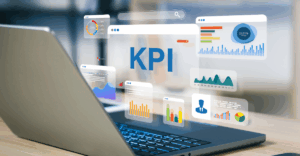Total Rewards: A Holistic Approach to Attracting and Retaining Talent
As organizations navigate the evolving landscape of workforce expectations and global market dynamics, Total Rewards strategies have become pivotal in attracting, retaining, and engaging top talent. A recent webinar hosted by HRSoft brought together industry leaders to discuss critical trends shaping the future of Total Rewards. Here are the key takeaways.
Understanding Total Rewards: Beyond Compensation
The modern Total Rewards framework extends far beyond traditional salaries and benefits. The integration of emotional salary—which refers to non-cash rewards such as recognition, flexibility, and opportunities for personal and professional growth—has become central to this approach. This holistic view resonates with employees, enhancing their day-to-day experience while aligning organizational offerings with individual preferences.
Dave Christison, Vice President of Marketing at AwardCo, introduced the concept of emotional salary, highlighting its role in fostering work-life harmony and boosting employee engagement. “It’s about creating an emotional connection through meaningful recognition and incentives,” he explained.
Leveraging Direct Compensation as a Differentiator
While direct compensation remains a cornerstone of any Total Rewards strategy, organizations today face challenges in balancing market competitiveness with inflationary pressures and fluctuating labor market conditions. As Jamie Newton, Founder and Managing Director of TRS Executive Search, pointed out, many firms are struggling to maintain their market position due to evolving employee expectations.
As base pay constraints increase, non-cash rewards and innovative compensation models have emerged as viable solutions. For example, AwardCo’s integration of experiential rewards and recognition programs highlights a shift towards offering customizable incentives tailored to individual employee needs, making direct compensation just one piece of the larger puzzle.
The Wellbeing Revolution: A Broader Focus
One of the most significant shifts in Total Rewards strategies is the emphasis on holistic wellbeing. Michael Gilmartin from Deloitte discussed how wellbeing has evolved from a physical health focus to a more multidimensional approach encompassing mental health, financial security, and emotional resilience.
Organizations are now leveraging data-driven insights to personalize wellbeing programs. Tools like AI are helping predict and address individual employee needs, leading to a more personalized and supportive employee experience. This personalization fosters an unbreakable employee-employer relationship, ensuring support at both individual and organizational levels.
The Complexities of Equity Compensation
Equity compensation, once reserved for executives, is increasingly being offered across broader employee groups. However, Jamie Newton raised concerns about the challenges of aligning equity plans with long-term organizational goals. “Monthly vesting schedules dilute the essence of long-term incentives,” he stated. Organizations are urged to rethink these strategies to avoid creating unrealistic expectations among employees.
Global Challenges in Total Rewards
For multinational organizations, implementing consistent Total Rewards strategies poses unique challenges. These challenges include compliance with diverse regional regulations, cultural nuances, and administrative complexities. Panelists agreed that a localized approach, combined with scalable digital solutions, is key to navigating these intricacies.
Dave Christison shared an example of tailoring rewards programs to cultural preferences, such as offering mobile top-ups in South America. This level of customization not only enhances the relevance of rewards but also strengthens the connection between employees and their employers.
Crystal Ball Predictions: The Future of Total Rewards
Looking ahead, the panelists envisioned a future where AI and advanced analytics play a central role in shaping Total Rewards strategies. Predictive models will help identify at-risk employees, optimize reward strategies, and create hyper-personalized programs. Transparency and accessibility will also become paramount, ensuring employees understand and effectively utilize their benefits.
As Michael Gilmartin aptly noted, “The focus will shift from expanding offerings to enhancing employee awareness and engagement with existing benefits.”
Conclusion: Adapting to a New Era of Total Rewards
The Total Rewards landscape is undergoing a major transformation. Employee expectations, technological advancements, and economic pressures are driving this change. To thrive in this new era, organizations must embrace agility, prioritize personalization, and foster transparent communication. Jamie Newton noted, “The world ‘s moved on from total reward statements…in terms of just giving someone a little piece of paper”. Organizations now need NextGen software that provides employees with 24/7 access to their total rewards, ensuring clear and continuous communication.
By aligning strategies with these principles, companies can build resilient, engaged, and satisfied workforces.
For HR professionals and organizational leaders, now is the time to rethink Total Rewards and position them as a strategic driver of success.
HRSoft’s Total Rewards Communication Software helps organizations bring transparency and clarity to their Total Rewards packages. With dynamic, interactive features, HRSoft provides employees with a full breakdown of compensation, including base salary, bonuses, long-term incentive programs, benefits and more.
Connect with HRSoft to learn more.



